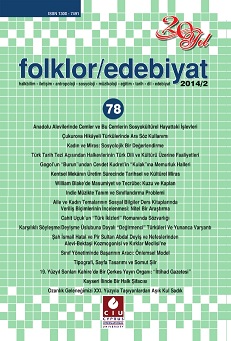Indie Müzikte Tanim Ve Siniflandirma Problemi
Definition and Classification Problem of Indie Music
Author(s): Aykut B. ÇerezcioğluSubject(s): Music, Classification, Sociology of Art
Published by: Uluslararası Kıbrıs Üniversitesi
Keywords: Indie music; independent music; independent companies; popular music;
Summary/Abstract: Indie music practices, where bands or musicians make their own recordings, manage the music production and distrubition related organizations by themselves, do collaborative works (or support a solo work among themselves) and design the visual material of their self produced recordings are based on 1970s’ Punk stream’s “do it yourself!” discourse and practice. Admitted as an attitude against the praxis standardize by the Rock’n Roll music industry, Punk Rock differs from conventional Rock’n Roll by not only sound, lyrics and performance but also music bands’ usage and communication with the audience. The main impulsion of this differentiation is the consideration of major (record) companies which Rock bands are signed to, as a part of the capitalist industry. Punks, needing no elements of capitalism for managing their business, also believe and think that they can make records with their own means. For that matter, they prefer to manage all process making music and music business, including making a record. This choice, which is also the roots of the “do it yourself!” mentality, is the beginning of the production and distrubition form, today known as independent music or indie music. Praxis known as indie music, becomes effective in all popular music scenes. Musicians and bands, while making their indie praxis bu themselves, may use the mediating function of some companies or collectivities which allocate their means to indie musicians. This study purposes to understand the music praxis known as independent music or indie music. Primarily, musical production and distrubiton praxis, today known as indie music will be discussed in historical continuum, following that, the meaning of indie music in today’s sense which is now accepted as a seperate music genre will be strived to understand.
Journal: Folklor/Edebiyat
- Issue Year: 20/2014
- Issue No: 78
- Page Range: 91-106
- Page Count: 16
- Language: Turkish

